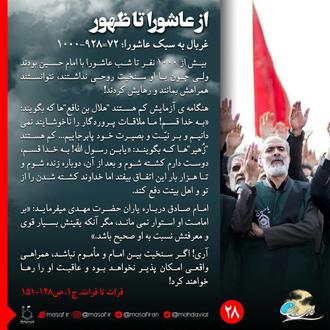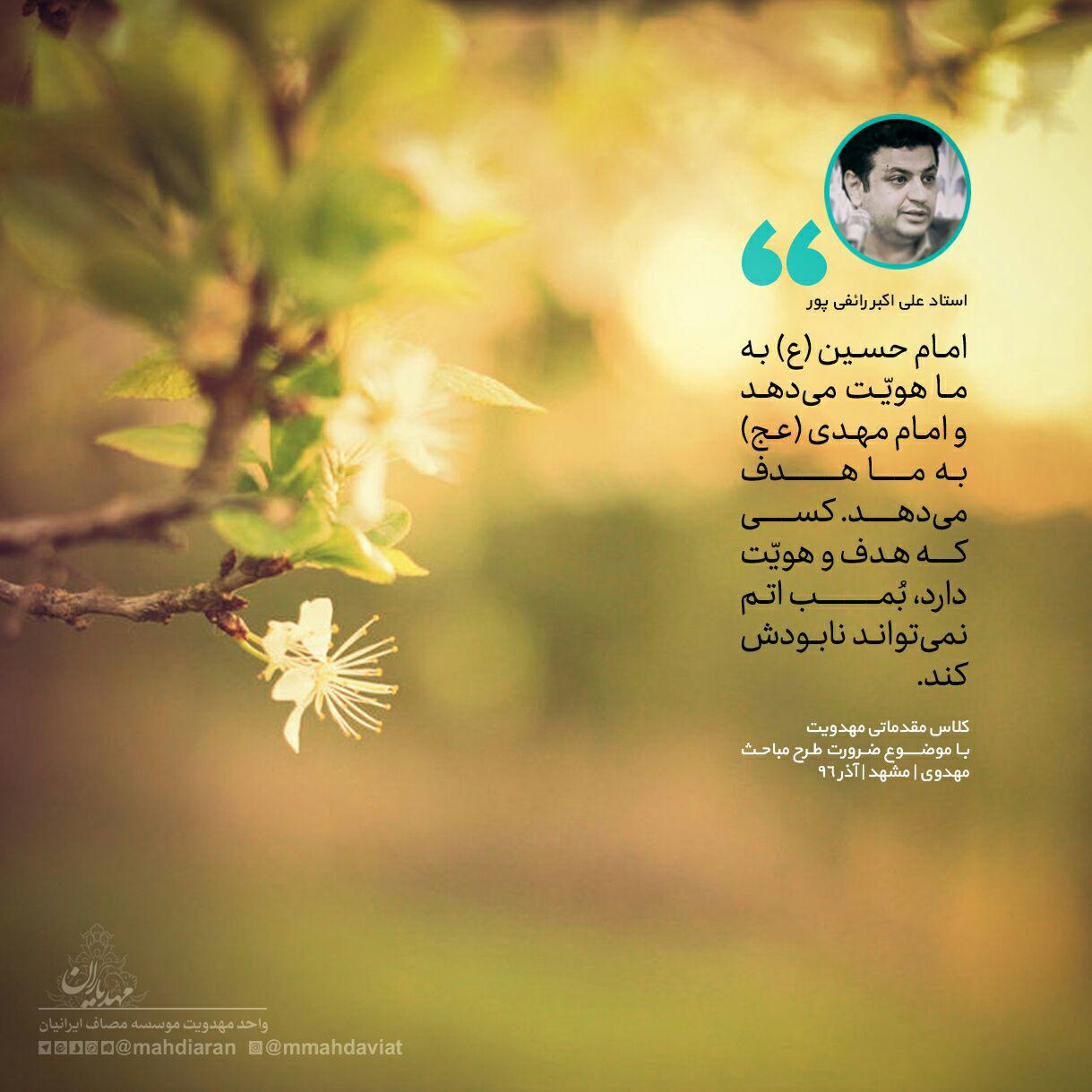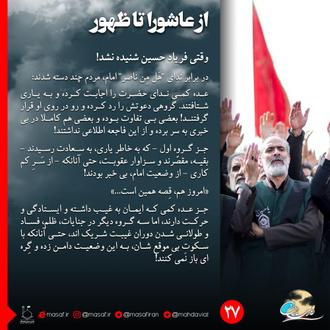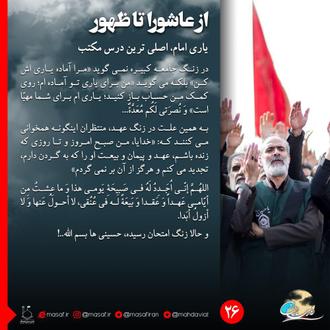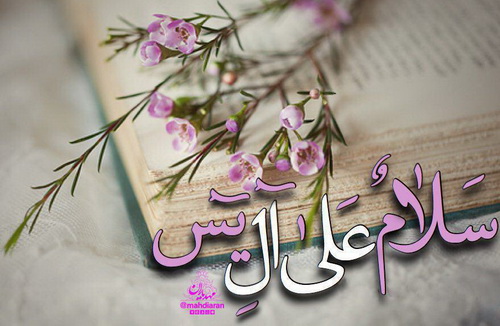Omission of luxuries and luxurism
A person came to Muawiyah and a tablecloth was spread before him that foods with any color were on it and he didn’t recognize one of them. He asked Muawiyah what was that food and he answered: “The stomach of duck filled with sheep’s brain, fried in pistachio oil and sprinkled with sugar.”
That person came to tears and said: “I recalled that I was with Ali (PBUH) at the time of Iftar (the time for breaking fast) and a sealed bag was brought for him. I asked: “What is in it and why is it sealed?” He said: “It is barley flour. I’m afraid Hassan or Hussain mix it with oil.”” *1
It is said in Seerah (the life history, behavior and habits) of Imam Mahdi (PBUH) in narrations that: “His cloths are not but rough (like battle outfit) and his food is not but coarse (barley bread).” *2
Note and elimination of misunderstanding: The concept of what was said about the Seerah of Ahl al-Bayt is not to avoid enjoying divine favours and the beauties of the world at all. But it is to avoid greed and pride to properties and luxurism and desire for the world.
(1-Nasr al-Dorar quoted from Asl al-Shia wa Usuloha. 2-Al-Ghayba al-Nu'mani, ch. 13, Hadith 20)
The safety, after the Reappearance
While before Imam Mahdi’s Reappearance unsafety is prevalent all over the world, one of his most fundamental undertakings is restoring safety to the society. By subtle programming at that time, safety is shortly restored to the society in all fields, the kind of safety that humankind has never experienced before. Safety has different aspects that we mention three of them herein:
1- The road safety: So that young females can travel from places to places without a Mahram accompanying with them and they are safe.
2- The judicial safety: So that people are not afraid that there is a possibility of trampling their rights.
3- The financial safety: It is so widespread that if someone puts his hand in other’s pocket, it wouldn’t be considered theft.
There are narrations (Hadithes) for all the above cases, but for the sake of brevity, we are equally satisfied by what mentioned before.
References in the Moudnameh book, Touneie, p. 123
Read the rest
